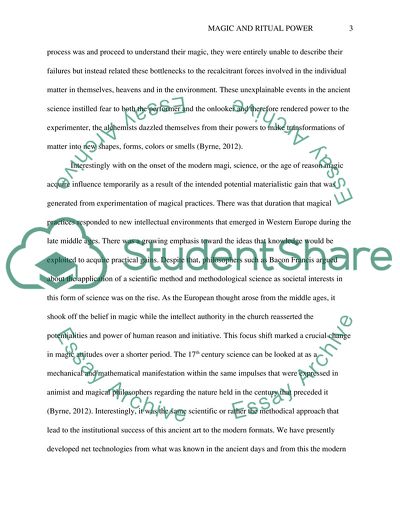Cite this document
(Contested Boundaries of Magic and Religion Essay Example | Topics and Well Written Essays - 1500 words, n.d.)
Contested Boundaries of Magic and Religion Essay Example | Topics and Well Written Essays - 1500 words. https://studentshare.org/religion-and-theology/1834495-magic-and-ritual-power
Contested Boundaries of Magic and Religion Essay Example | Topics and Well Written Essays - 1500 words. https://studentshare.org/religion-and-theology/1834495-magic-and-ritual-power
(Contested Boundaries of Magic and Religion Essay Example | Topics and Well Written Essays - 1500 Words)
Contested Boundaries of Magic and Religion Essay Example | Topics and Well Written Essays - 1500 Words. https://studentshare.org/religion-and-theology/1834495-magic-and-ritual-power.
Contested Boundaries of Magic and Religion Essay Example | Topics and Well Written Essays - 1500 Words. https://studentshare.org/religion-and-theology/1834495-magic-and-ritual-power.
“Contested Boundaries of Magic and Religion Essay Example | Topics and Well Written Essays - 1500 Words”. https://studentshare.org/religion-and-theology/1834495-magic-and-ritual-power.


